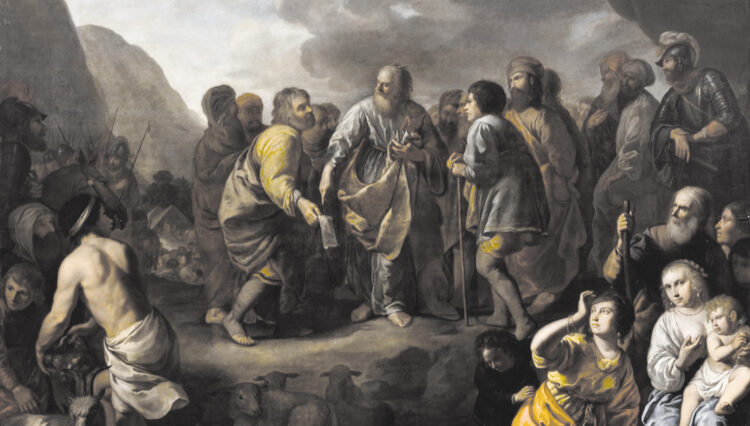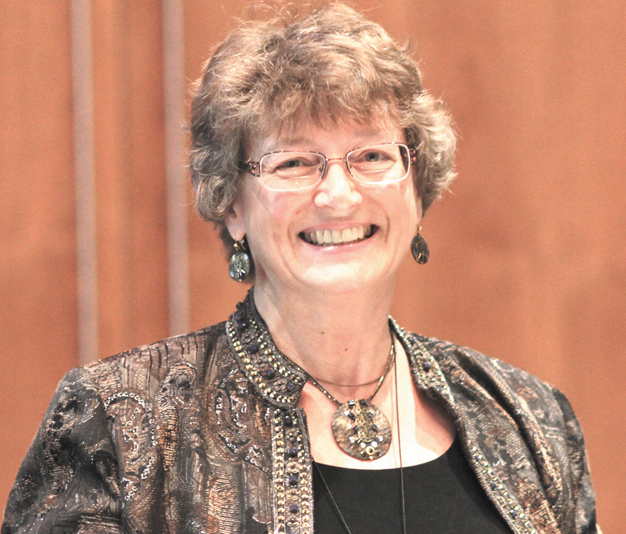A heritage of justice

Our Dual Heritage Series
Jewish Family Education with Candace R. Kwiatek, The Dayton Jewish Observer
Jewish folklore recounts the tale of an old-school Southern lady who decided to do something nice for the World War II boys in uniform. She phoned the local army base and spoke to the lieutenant:
“Please send me three nice, lonely boys and I will treat them to Thanksgiving dinner,” she requested. “But just one little thing: I don’t care if they are Northerners or Southerners, but no Jews, please!” The lieutenant said he understood perfectly.
When Thanksgiving Day arrived, the lady heard a knock on the door. She opened it to see three young men — African American men — in army uniform.
“Oh…my!” she gasped in shock. “There…must be some mistake!”
“Oh no, ma’am,” one of the soldiers said, smiling. “Lieutenant Goldberg never makes mistakes!”
“We hold these truths to be self-evident, that all men are created equal…” This aspiration so eloquently expressed in the Declaration of Independence has not yet been fully realized by American society or its institutions. From folklore to recent headlines, that fact has been brought into sharp relief: antisemitism, racism, and other forms of injustice still exist.
Justice, as it developed in Western society, is a concept of moral rightness founded on truth, integrity, equity, rationality, and law. We shouldn’t take it for granted.

In ancient civilizations, writes Rabbi Dov Peretz Elkins, there were “no system of checks and balances, no brakes on the passion of the judge/king, no external criteria of abstract ideals, and no divine imperatives demanding equal treatment for all…Codes of law existed…but they were based on what was utilitarian…(on the whims of) a capricious, mortal human whose primary interest was his own welfare.”
The Bible introduced to the ancient world a radically new concept of justice (tzedek). Rabbi Ken Spiro describes tzedek as a biblical obsession, since the word itself appears over 100 times in the Bible, with specific descriptions of obligatory righteous behaviors adding significantly to that number.
Echoes of biblical justice are visible at the foundation of America’s justice system.
“All men are created equal,” was not the American Founders’ idea; to them, it was a statement of Divine truth found in Genesis: “In the beginning God created humankind in His image.” Equality before God confers equality before the law as an inalienable right.
Human equality is absolute and cannot be qualified — not by economic or social status, not by religion or race, nor by any other attribute.
Justice, too, cannot be qualified, making “no distinction between rich and poor, powerful and powerless, home born or stranger,” notes Rabbi Jonathan Sacks.
Thus the Talmud counsels, “If two people come into court, one clothed in rags, and the other in (rich) garments, the court should say to the well-dressed man, ‘Either dress like him, or dress him like you.’” Similarly in our society, there is an expectation of appropriate court dress — neutral and respectable — of clients and lawyers alike, to limit its effect on judgment.
What if justice goes awry? When the destruction of Sodom and Gomorrah looms, Abraham argues with God: “What if there should be 50 righteous people in the midst of the city? Would You still stamp it out…? Shall the Judge of all the earth not do justice?” With Abraham’s challenge, the right to appeal is introduced. Added to that later is a system of lower and higher courts described to Moses by his father-in-law, Jethro.
Vigilante justice is disallowed; one must use the courts, whether the accused is a rebellious child or the murderer of a family member.
Hearsay and supposition have no role in justice, which depends on physical evidence or eyewitnesses: “A single witness shall not stand up against any man for any iniquity…by the testimony of two witnesses or…three witnesses shall a matter be confirmed.”
And all are cautioned in the Commandments, “You shall not bear false witness against your fellow.”
Inspired by the Bible, Judaism is infused with the notion of justice: “Justice, justice you shall pursue (Deut. 16:20).”
The Chasidic Reb Ya’akov Yitchak of Pshysha explains: “the repetition is meant to convey that not only must the ends we pursue be just, but so too must the means we employ to achieve those ends.” There can be no legitimate Jewish Robin Hoods.
The Bible identifies only one other value to be pursued: peace. “Seek peace and pursue it (Psalms 34:14).”
The Talmudic sage Rabbi Yehoshua ben Korcha asks, “What then is the justice that coexists with peace?” Judaism’s answer is the individual application of law tempered by compassion and not influenced by favoritism, fear, bribery, politics, or social interests.
“Because it belongs to God, justice must never be compromised,” Sacks concludes. American justice was also founded on these principles.
Rabbi Joseph Telushkin recounts the Depression-era tale of a judge faced with a poor woman who had stolen food to feed her children.
Justice and compassion led him to rule, “I fine you $10 for stealing, and I fine everyone else in this courtroom, myself included, 50 cents each for living in a city where a woman is forced to steal to feed her children.”
The money was collected, the fine was paid, and the extra money went to the woman.
If we truly wish to pursue a more just America, perhaps we should begin by pursuing justice ourselves, in our communities, one person at a time.
Literature to share
Palestine Posts: An Eyewitness Account of the Birth of Israel by Daniel Chertoff. “I discovered the letters only after he died,” writes the author, stunned by the treasure trove of personal correspondence between his grandparents, and then between his father and various family members. It was a momentous find, because from 1935 to 1936, the author’s father lived in Palestine, and then again from 1947 to 1950, he lived there through the birth of Israel, working for the Palestine Post and serving in the Haganah (precursor to the Israel Defense Forces). Weaving together meticulously-researched history with excerpts from the found letters and related photographs, the author has created a magnificent memoir and story of the birth of Israel. Highly recommended.
Creation Colors by Ann Koffsky. “In the beginning, there was nothing. No colors at all.” In this delightful preschool book, colors are introduced one-by-one during a retelling of the Creation story. Especially unique are the paper cut snowflake-style illustrations, which capture both the uniqueness and the order of each element of creation. The text is simple, the colors are bold, and the images are familiar. A great introduction to the biblical story.
To read the complete July 2020 Dayton Jewish Observer, click here.


